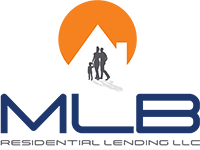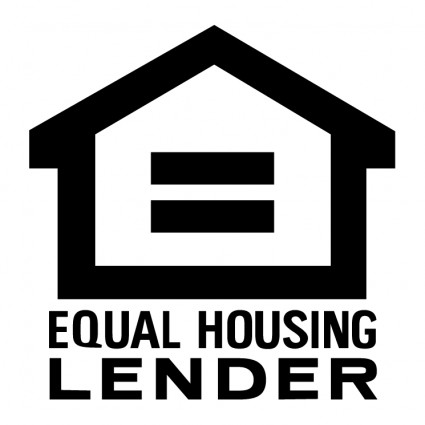Loan Programs
FHA:
FHA home loans are mortgages insured by the federal government through the Federal Housing Administration (FHA), a branch of the Department of Housing and Urban Development. FHA home loans reduce the barrier to entry for homebuyers and refinancers by featuring low down payments, flexible credit requirements and more purchase power. If funds are limited, an FHA home loan can help you finance more than 80% of your home value.
What are FHA loan requirements?
In order to ensure that you meet the minimum FHA loan requirements, you need to consider the following factors:
- Are you over the age of 18?
- Do you have a valid Social Security number and lawful residency in the United States?
- Do you have a steady employment history? If not, have you at least worked for the same employer for the past two years?
- Can you afford the minimum down payment of 3.5% or 10% (depending on credit score)?
- Do you have a credit score above 580?
- Have you been out of bankruptcy for at least the past two years? (If the answer is no, there may still be exceptions that can be made on a case-by-case basis.).
- Will this home be your primary residence?
You’ll likely need to be able to answer all of these questions with a hearty ‘YES’ in order to meet FHA home loan requirements.
VA:
The US Government's VA loans program helps veterans, active-duty service members and their families qualify for a home loan. Though they are issued by private lenders like MLB Residential Lending, VA home loans are backed by the US Department of Veterans Affairs.
VA home loans feature no down payment or private mortgage insurance (PMI) requirements, making them a great choice for any veteran or active service member looking to purchase a home. For this reason, a guaranteed VA loan is often the best and easiest way for veterans to purchase a home of their own.
A VA loan is a no-brainer for qualified homebuyers and refinancers. The intended candidate is a service member or surviving spouse with a clean financial record.
Ask yourself these four questions to determine if you meet the minimum VA home loan requirements:
- Are you a current or ex-military personnel?
- Are you the surviving spouse of a current or ex-military personnel?
- Have you defaulted on a home loan within the last 12 months?
- Have you declared bankruptcy within the last two years?
If you answered "YES" to either of the first two questions and a resounding "NO" to questions three and four, you most likely meet the basic VA home loan requirements.
FHA 203k Renovation Mortgages
If you are considering purchasing or refinancing a home in need of rehab work MLB Residential Lending is a Direct FHA 203k lender ready to help you navigate this unique program. There are many homes on the market that require some TLC and could be your dream-home. We want to make your dream a possibility and assist you with understanding the guidelines to obtain a 203K Renovation Loan.
Benefits of FHA 203k Renovation Mortgages:
- More Options - You love the town, the neighborhood, the street, in fact you everything about the house except. We can turn the negative into a positive with the FHA 203-K renovation loan product.
- Flexible Down-Payments - Down payment requirements are as low as 3.5% and you get a 30 year fixed, market rate of interest.
- Flexible Underwriting - Flexible FHA underwriting and credit guidelines
- Potential Home Value Appreciation - Potential increased value appreciation due to obtaining a reduced price for the home
What You Need To Know About 203K Renovation Mortgages:
Which repairs qualify? - A 203k Renovation Mortgage is for properties in need of structural repairs such as a room addition. A Streamlined 203k Renovation Loan is for non-structural repairs such as painting and new appliances. The FHA 203k also covers: patios, bathroom, decks and kitchen remodels, plumbing, flooring, new siding, additions and expansion to the home such as a second story, and heating and air conditioning systems. Need a new well and septic, perfectly fine. The program does not cover so-called “luxury” improvements.
How much money can you get? - The amount of money you may borrow under an FHA 203k varies depending on the type of loan you get (regular vs. streamlined). Regular FHA 203k Loans allow an amount that is the lesser of these two amounts: 1) As-is value of the property plus repair costs, or 2) 110 percent of the after improved estimated value of the property including planned repairs.
Streamlined 203K Loans allow a loan of the purchase price of the home plus up to $35,000. The as-is value of the property or the estimated value of the property post-repair will be determined by an appraisal. The typical down-payment is as low as 3.5 percent, but the money can come from a family member, employer or charitable organization
What kinds of properties qualify? - One- to four-family homes that have been completed for at least a year; homes that have been torn down (Some of existing foundation must be in place); a transportable home that can be moved to a new location. Co-ops are not eligible, but some condos are eligible. Have a mixed use property, we can help.
FHA 203K mortgage loans have been available for a very long time. We take pride in the fact that we offer numerous options for borrowers in New Jersey and New York to achieve home ownership. MLB Residential has years of experience helping many New Jersey and New York homebuyers in evaluating their needs for repairs and creating loan programs that make sense. Almost anyone that refinances or purchases a primary residence could be eligible for the 203K loan program in NJ and NY. Eligibility will depend on many factors, including your credit score.
Jumbo Loans
A non-conforming jumbo mortgage can help you purchase a lot of real estate. This mortgage is needed for loan amounts over the conforming loan limit of $484,350 and $726,525 in high-cost areas. If you need to take out a loan over the conforming limit, a fixed or adjustable rate jumbo mortgage could be your ticket to a big and beautiful home.
There is, however, one key difference: Jumbo loans are ineligible for purchase by Fannie Mae or Freddie Mac and must be sold in the secondary market. What does this mean? Jumbo loans can require more stringent credit guidelines and larger down payments than conforming loans.
Is a jumbo mortgage right for you?
Can you afford high-value real estate but don’t have enough saved up to bring a loan down to the conforming limit? A jumbo mortgage can help you make your move! If your financial situation is on the upswing, a jumbo loan can be a good way to bypass a starter home and purchase the full-sized home of your dreams.
Jumbo loan features
A jumbo mortgage is a great way to rapidly build your credit. On-time payments will improve your score by leaps and bounds. One important note—it may be more expensive to refinance a jumbo loan due to higher closing costs.
Conventional Loans
A conventional loan is a mortgage not insured or guaranteed by a government agency such as the Federal Housing Administration (FHA) or the Department of Veterans Affairs (VA). As compared to FHA loans, a conventional mortgage typically requires a higher credit score. These loans will also require Private Mortgage Insurance (PMI) for loans with less than a 20% down payment. These loans are subject to maximum loan limits. Loans that exceed the maximum limit are known as Jumbo loans.
Here are some of the benefits of a conventional loan, refinance or cash out refinance:
- Conventional loans may be used to purchase investment properties or a second home
- No private mortgage insurance required if you put 20% down
- A variety of flexible loan term options to fit your needs whether it’s a 15-year or a 30-year
- No upfront mortgage insurance premium
- The ability to refinance into a conventional loan from any other loan type that may allow you to take advantage of lower interest rates
- To be eligible for a conventional purchase, refinance or cash out loan you should have:
- Good credit, typically 620 or greater FICO.
- Provide a down payment, ideally 20% to avoid Private Mortgage Insurance (PMI).
- Show proof of income and two years of tax returns.
- Cash reserves on hand to cover closing and additional costs.
- Ensure total debt does not exceed 45% of your income.

